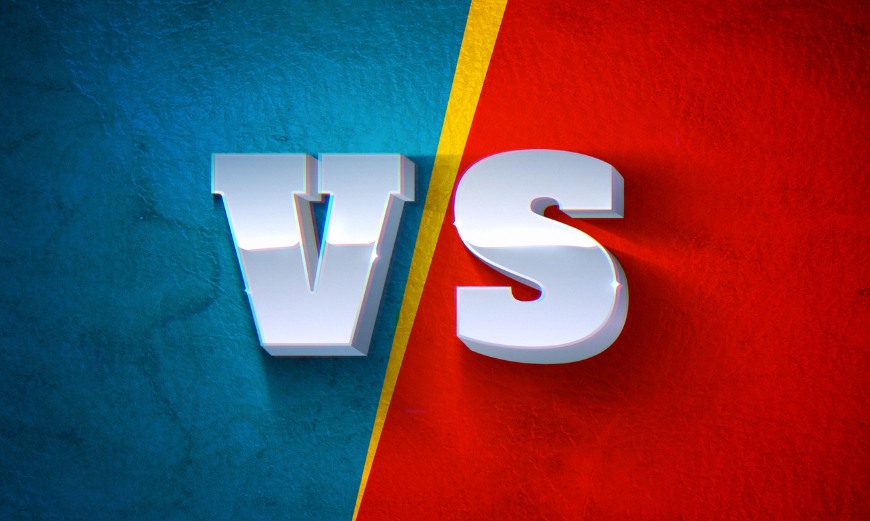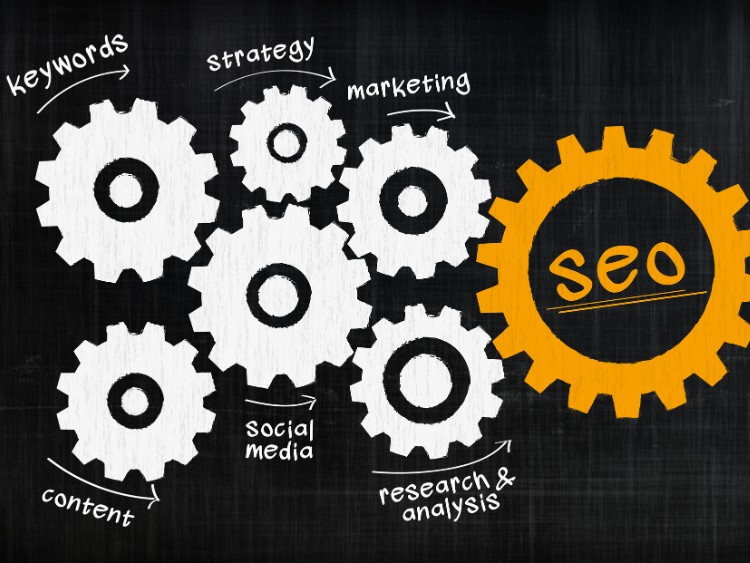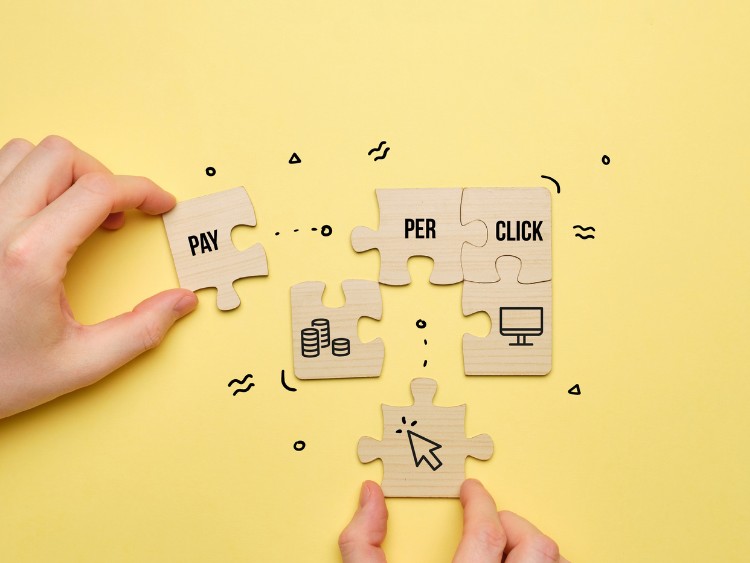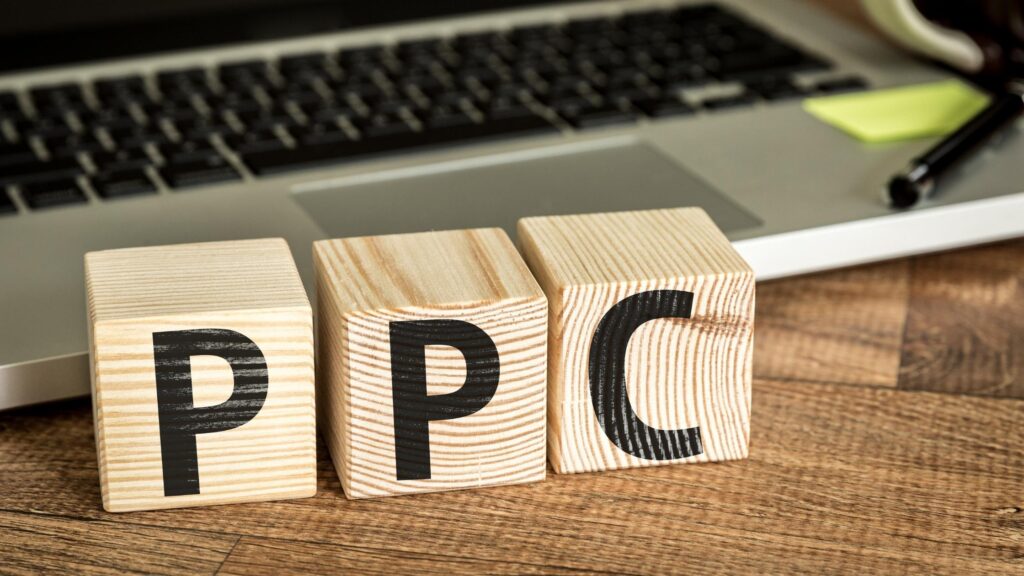The only desire that brings businesses online is to generate traffic and revenue through online searches. To make this happen, they utilize what is known as Search Engine Marketing. The importance and success of SEM are evident because around 83% of users use Google, the leading search engine, thrice daily. Most of them click on the websites appearing at the top of the search engine results page, organically or through paid strategies like PPC.
While search engine marketing is famous among digital marketers, the constant comparison between the two leading strategies, “SEO vs. PPC,” remains in the highlights.
PPC stands for Pay-Per-Click and originated a year earlier than SEO in 1996. On the other hand, SEO stands for Search Engine Optimization, which was created in 1997. While both these strategies are similar in age and offer almost the same results to businesses, which are traffic and lead generation, they utilize different methods and require a different investment.
That being said, if you are a digital marketer juggling the thought of SEO vs. paid search, our blog post is all you need. In this read, we will discuss the differences between SEO and PPC, when to use SEO or PPC, the benefits, and the advantages if combined.
Differences Between SEO and PPC – A Quick Comparison
Features |
SEO |
PPC |
| Cost | Long-term investment, typically free | Ongoing costs based on clicks |
| Timeframe | Can take months to see results | Immediate results |
| Control | More control over organic search rankings | More control over ad placement and targeting |
| ROI | Can have a higher ROI in the long run | More immediate and measurable ROI |
| Organic vs. Paid | Organic traffic | Paid traffic |
| Keywords | Optimizes for relevant keywords | Bids on keywords |
| Visibility | Can appear in organic search results | Appears in paid ad results at the top of SERPs |
| Sustainability | Can continue to generate traffic even after initial effort | Requires ongoing management and investment |
SEO [Definition, Types, And Impotance]
Search engine optimization, widely known as SEO, is a technique for optimizing or structuring a website to increase its visibility on search engine result pages. This technique works for all search engines, including Google, Bing, and others. SEO comprises various elements such as content creation, keyword research, website optimization, and backling.
SEO focuses on ranking websites higher on SERPs and making them visible when a user searches for a related query. The goal is to gather relevant traffic, which contributes to business growth. Unlike most digital marketing techniques, SEO does not include investment and can be categorized as follows:
Types of SEO
1. Technical SEO
Technical SEO deals with the technical aspects of a business website. It helps search engine bots index the website without any technical issues. When technical SEO is considered, everything matters, including the speed of your web pages, the time they take to load, and their architecture.
2. On-page SEO
On-page SEO is another type that focuses on structuring and optimizing the website and its content according to search queries, better known as relevant keywords. People use different keywords to search for their desired outcome for every product and service. Suppose a user is searching for a clinic in New Jersey. His typical keyword for search query would be “best clinics in New Jersey.” While doing on-page SEO, experts optimize meta descriptions, page URLs, page titles, and overall content using the relevant keywords. Quality content is the main aspect of this type of SEO. Everything from blog posts to infographics improves the rank of a website on SERPs.
Learn “How to Optimize a WordPress Site for SEO”
3. Off-page SEO
Off-page SEO is another important type but does not link directly to the website. Instead, it is about building the website’s trust and authority in search engine bots’ eyes. To do so, high-quality backlinks play an important role. To learn more about backlinks, you can read the Backlinko guide “What Are Backlinks?” Besides backlinks, sharing content and E-A-T ranking play a vital role in improving the website’s visibility and traffic.
4. Local & International SEO
Unlike other types of SEO, this type depends upon the business owner’s preference and the scope of the business. To give our readers a brief idea, Local SEO involves optimizing a website according to local searches, while international SEO involves optimization according to international searches.
5. Mobile SEO
Mobile SEO involves all optimization strategies to make the website visible to users when they search with a targeted keyword. However, this type focuses on properly viewing a website on mobile devices.
Importance of SEO
Search engine optimization is an important strategy for a business website. It improves the website’s visibility for search engines, drives potential traffic, and converts the audience into customers. It is no longer a secret that every industry is highly saturated with hundreds of businesses calling themselves the best. Therefore, to stand tall, SEO can be leveraged to rank higher on SERPs and appear more relevant and authentic to potential customers.
When you do SEO for your website, which is to optimize your website’s structure according to the search engine’s preferences, write quality content with relevant keywords, and make authoritative backlinks, your website boosts up on the search engine results pages. As a result, it generates the revenue you expect from your business venture.
PPC [Definition, Types, And Importance]
PPC, or pay-per-click advertising, is a technique that involves investment to reach the target audience. Internet marketers utilize Google Ads to place their business ads at the top of search engine results pages. Every time someone clicks on those ads, Google charges them a fee. To make it more clear, PPC is a technique of buying traffic to the website instead of optimizing the website to appear organically on top of SERPs. Unlike SEO, it requires investment, but like SEO, it can be categorized as follows:
Types of PPC
1. Search Ads
Search Ads are the most common and widely used type of PPC. They appear at the top of SERPs when users search for a related query. Advertisers set a bid amount for keywords they find relevant to their business, and when users search for those keywords, Google shows ads at the top of the SERP.
2. Display Ads
Display ads utilize graphic design, either in the form of images or videos. They appear on websites, applications, and videos that fall under the Google display network or other ad networks of different search engines.
3. Social Media Ads
PPC ads are not limited to search engines only. They are targeted to user behavior and demographics and appear on all social media channels, including Facebook, Twitter, LinkedIn, and Instagram. This type of PPC is a great way to target a younger audience.
4. Shopping Ads
Shopping Ads are another kind of PPC ad, also known as PLAs or product listing ads. These ads appear on search engines and display everything about the product, from an image to title, price, and a link to the product’s page. This type of PPC ad is a perfect option for e-commerce businesses.
5. Video Ads
Video ads appear before, between, and after videos on platforms like YouTube. Advertisers must pay search engines if the user watches the ad for a certain time or clicks on it.
Importance of PPC
PPC is an important strategy if a business seeks immediate results, such as visibility and traffic. When you invest in PPC, your ad appears high on the search engine result page or website and is relevant to the target audience. This enables your business to reach the potential audience already searching for similar products and services.
PPC helps enterprises leverage precise targeting using keywords, demographics, and location while ensuring that the business’s invested digital marketing budget is utilized carefully to gain the desired results, which are traffic and potential leads.
When to Use SEO or PPC?
By now, you may have understood the importance of SEO and PPC. Both these strategies are strongly effective and have driven business results for many years. However, before you are persuaded by the long-term benefits of SEO or think about choosing quick results with PPC, it is important to understand when to use SEO or PPC. We have created a quick table to help our audience decide and save it for later reference.
Scenarios When to Use Organic vs. Paid Search Strategies |
SEO |
PPC |
| Building brand awareness | ✅ | ❌ |
| Long-term organic traffic | ✅ | ❌ |
| Establishing authority | ✅ | ❌ |
| Generating leads immediately | ❌ | ✅ |
| Promoting specific products or services | ❌ | ✅ |
| Reaching a targeted audience | ❌ | ✅ |
| Limited budget | ✅ | ❌ |
| Short-term campaign | ❌ | ✅ |
| Long-term campaign | ✅ | ❌ |
| Measurable results | ❌ | ✅ |
You may also like “Does PPC Advertising Affect Organic SEO?”
Advantages & Disadvantages of SEO and PPC marketing strategies
So far, we have discussed the differences, types, and when to use SEO vs. Paid Search. While both strategies bring solid results for businesses, learning about their advantages and disadvantages can help you create a clear perception and decide which strategy has the potential to bring desired results for your business.
Advantages of SEO
The advantages of SEO are listed below.
1. No Investment Option
If you do a cost comparison of SEO and PPC, you will see that SEO wins since it does not require a direct investment. While you must invest a lot to hire a web designer, developer, content writer, and SEO expert, you don’t have to pay search engines to place your website at the top. You will get the top spot at SERP without paying anything through good SEO and can enjoy the potential traffic.
2. Results that Stay
The main difference between organic vs. paid search strategies is that visibility and results generated organically have the potential to stay longer, whereas paid results vanish as the payment ends. Once you optimize your website per the search engine’s algorithm, preferences, and relevant keywords, your website will stay at the top of SERPs.
3. Consistent Authority
Even if your website falls below SERPs, customers will remember you for the experience. According to research, websites ranked once on search engines using SEO are viewed as trusted by the audience even if they lose their place.
Disadvantages of SEO
The disadvantages of SEO include:
1. Time Consuming & Constant Updates
If you are in search of immediate results, SEO is not the cup of tea for you. Search engine optimization requires a whole procedure and time to appear authentic and user-friendly in sight of search engine bots. Apart from that, the constant changes in algorithms can ruin your months of hard work, leaving you standing exactly where you started.
2. Competitive Nature
Just like you, other businesses want to appear at the top of SERPs and leverage organic traffic. This fact makes SEO competitive in nature, and you need to constantly work to outshine the competition. Other than that, results are also not guaranteed.
Advantages of PPC
The advantages of PPC include the following:
1. Quick Results, Better ROI
If the ROI for SEO vs. PPC is compared, PPC will likely lead the way, even if short-term. PPC can get you immediate results soon after you launch the campaign. So, if you are in a hurry to grow your business and generate potential leads, PPC is the way to go.
2. No Algorithm Changes
Unlike SEO, PPC does not take the effect of algorithm changes. No matter how many updates the search engine releases, your PPC ads will remain at the top of search engine result pages.
3. Space to Adjust As Per Data
In SEO, you don’t get a chance to know whether you are doing it right or not. However, in PPC, you are flexible in making changes according to the audience’s preferences by reviewing the data collected. With the option to see what works best, PPC becomes a solid strategy to drive potential results.
Read more: “How much does Google Ads Cost in 2024?”
Disadvantages of PPC
The shortcomings of PPC are as follows:
1. Not Suitable for Businesses with a Tight Budget
While PPC can drive results in real-time, it is not suited for every business. An effective PPC campaign requires a strong budget, which can further escalate. This makes PPC an option that can only be leveraged by large companies or those without budget constraints.
2. Short Term Strategy
With all its perks, it cannot be denied that PPC is a short-term process, and results cannot be retained for a longer time. Moreover, continuously running PPC campaigns can also result in ad fatigue for users.
SEO vs. PPC: What to Choose?
Throughout the online advertisement market, you will encounter marketers who oppose SEO to PPC or PPC to SEO. However, it is important to make a meeting point for both strategies to reach potential results for your business and leverage all the benefits of SEO and PPC.
Advantages of Combining SEO & PPC
Here are the benefits of SEO and PPC combined in the search engine marketing equation.
1. Elevated Visibility
When combined, SEO and PPC can improve your website’s visibility on search engines and other online platforms. By checking all the optimization boxes of your website for search engines and running PPC campaigns, you reach a potential audience and create a user experience for them.
2. Improved Lead Generation
PPC and SEO can work together to benefit your business’s lead generation. SEO can drive quality traffic, while PPC can persuade a specifically targeted audience through paid ads.
3. Increased Conversions
One of the most prominent benefits of utilizing PPC and SEO together is to create an effective customer journey. While SEO practices can build trust and reliability for your website, PPC can be leveraged to take potential customers to the relevant pages.
4. Better ROI
SEO is cost-effective but still requires investment, even if not directly. When you combine it with PPC, you can leverage a higher ROI than PPC alone cannot generate. Optimizing your website for both organic and paid searches allows you to reach a wide audience while appearing authentic to the target audience, resulting in real conversions.
Conclusion:
The debate of SEO vs. paid search may never end, but our blog post has reached its concluding section. While SEO is about optimizing the website for search engines to drive results, PPC is about leveraging search engines to drive results for the website. The two may use different ways to market the website online or on search engines, but their goal is the same.
Our blog post has tried to provide a clear vision for those battling with “SEO vs. PPC” thoughts. Whether you want to market your website on Google, Bing, or other search engines, having a clear goal and understanding of what works best in different circumstances is important. We hope our blog has cleared it out for you.
Nonetheless, if you are not an internet marketer and find it difficult to decide when to use SEO or PPC for your business, you can reach out to WOWbix. We’re a full-circle digital marketing company with a team of experts with a strong command of SEO and PPC. With us by your side, you can expect nothing but the real potential that converts.





